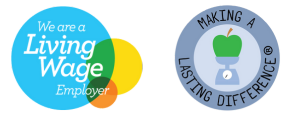A new Scottish Independent Advocacy Alliance (SIAA) position paper documents substantial challenges in independent advocacy provision, highlighting particular concerns in funding and commissioning collective and citizen advocacy.
Read Lang May Yer Voice Sound: Sustaining Collective and Citizen Advocacy Models
A pressing example of this is recent proposed funding cuts to collective advocacy in Edinburgh. Edinburgh Health and Social Care Partnership recently informed several SIAA member organisations that they intend to defund collective advocacy across Edinburgh City. We are also aware the Angus Independent Advocacy have recently lost funding for their citizen advocacy work.
Save CAPS Collective Advocacy
The CAPS Collective Advocacy projects at risk are:
- Oor Mad History
- Arts as Advocacy & Out of Sight Out of Mind
- Seen But Not Heard, Eating Disorders project
- Experiences of Psychosis
- Much More Than a Label, Personality Disorder project
- Experiences of Trauma
- LGBTQIA+ advocacy
- Minority Ethnic advocacy
- Lothian Voices
These projects work in different areas to ensure that the voices of people in Edinburgh with experience of mental health issues can be heard in relation to services, policies and in the public realm.
If the plans to cut these projects goes ahead, people will lose these methods of having their voices heard on important issues and making positive changes for others.
It would lead to a loss of 70% of the Collective Advocacy service at CAPS, and with it the loss to Edinburgh of a significant amount of knowledge, skills and pathways for voices, built by staff and the people in the groups. You can find out more about the Collective Advocacy work that CAPS does here.
Angus Independent Advocacy regret to announce that the Citizen Advocacy Project ended on 28th March 2025 due to a lack of funding.
Angus Independent Advocacy would like to extend their sincere thanks to everyone for the support and collaboration throughout the project’s duration. Although the project is concluding, they are actively exploring options to continue this important work in the future and will keep everyone informed of any new developments or opportunities.
While Citizen Advocacy will no longer be operating, Angus Independent Advocacy will continue to provide essential independent advocacy services to people in Angus through their other projects.
Despite the Mental Health (Care and Treatment) (Scotland) Act 2003 establishing a clear right of access to independent advocacy for all people with a ‘mental disorder’ – including those not subject to compulsory measures – the reality falls far short of the legal promise. Health and Social Care Partnerships are interpreting advocacy rights increasingly narrowly, with only 5% of those legally entitled to independent advocacy actually able to access these vital services. It is important to note that the right under the 2003 Act applies to people with a learning disability, autistic people and people with dementia.
Key statistical indicators underscore the mounting pressure:
- Mental health-related welfare guardianships have doubled in the past decade
- Compulsory mental health detentions increased in 2023-24
- Reported mental health conditions rose from 4.4% in 2011 to 11.3% in 2022
These statistics aren’t just numbers – they represent real people facing increasingly complex barriers to realising their human rights. In fact seventy-one percent of SIAA member organisations reported unmet advocacy needs, indicating a widening gap between need and available resources. Independent advocacy organisations are reporting not just more referrals, but more intricate cases that demand significantly more time and support. Many independent advocacy organisations, for the first time in their histories, have begun operating waiting lists, a clear indication of the mounting pressure.
Economic and Social Impact
Economic analysis from the Social Finance ‘Independent Advocacy for Independent Lives’ report provides a compelling argument for sustained advocacy funding. Research indicates that for every £1 invested in advocacy services, approximately:
- £7 is saved by the National Health Service
- £5 is saved by local authorities
What models are proposed cuts going to effect?
Two particularly vulnerable independent advocacy models are under threat:
- Collective Advocacy: Creates spaces for people to explore shared issues and amplify their voices
- Citizen Advocacy: Involves unpaid citizens developing long-term, supportive relationships with community members who need additional support
Recommendations
The SIAA is calling for proposed funding cuts to collective and citizen advocacy to be halted and immediate action on:
- Strategic Planning: Health and Social Care Partnerships must develop and maintain up-to-date strategic advocacy plans.
- Quality Evaluation: Use existing toolkits to better understand and commission independent advocacy services.
- Prevention-Focused Funding: Reframe advocacy funding as a strategic investment in community well-being, prevention and embedding a human rights-based approach.
With international human rights conventions like the United Nations Convention on the Rights of Persons with Disabilities (UNCRPD) and the United Nations Convention on the Rights of the Child (UNCRC), as well as national and local policy emphasising participation and voice as a critical part of a human rights-based approach, these proposed cuts to independent advocacy represent more than a budget issue – they’re a fundamental challenge to human rights.
As Scotland grapples with increasing challenges in providing public services, the message is clear: independent advocacy isn’t a luxury, it’s a necessity.
Read Lang May Yer Voice Sound: Sustaining Collective and Citizen Advocacy Models

